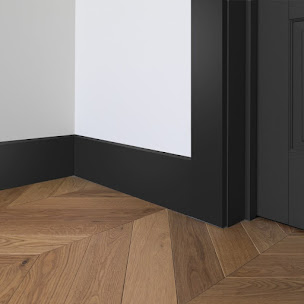Wooden Decking Tiles for Cozy Outdoor Corners
You don't need to undertake a full renovation to convert an outdoor space into a cozy atmosphere. Sometimes, a solution requires a simple yet smart design element that encompasses function, design, and ease of use. The popularity of Wooden Decking Tiles is one such solution that has become popular for homeowners and renters seeking to boost their outdoor space. Wooden decking tiles can instantly bring outdoor patios, balconies, and garden corners into adorable and inviting spaces that set the stage for relaxation and connection with nature.
What's a Wooden Decking Tile?
Wooden decking tiles are prefabricated square or rectangular panels composed of interlocking wooden slats that are secured to a durable plastic or composite base. Wooden decking tiles require easy installation, typically without tools or adhesives, and can be placed on top of a variety of existing surfaces, such as concrete, gravel, or even grass. The ability to use decking tiles modularly encourages use over as little or as much area as desired, making them equally appropriate for a large outdoor deck as they are for a tight-space balcony or courtyard.
Most decking tiles are constructed of tough hardwoods such as teak, acacia, ipe, eucalyptus, or cedar, which are naturally resistant to moisture, rot, and insects. Certain tiles might have composite materials made from recycled wood fibers and plastic, providing enhanced weather resistance with minimal maintenance.
Why Wooden Decking Tiles Are Ideal for Cozy Outdoor Corners
From a small balcony in an apartment to an ignored corner of your garden, wooden decking tiles can change any underused space into a cozy place. Here are some examples of why they are ideal for your intimate, stylish, and sustainable outdoor spaces:
- Warm Natural Look: Wood provides warmth and charm that cannot be matched by any other material. The colors and textures are calming and give you a sense of connection with nature while relaxing. Wooden decking tiles look great with plants, stone, and other natural materials, making them a great option for cozy, organic-looking corners outside.
- Simple Installation: The simplicity involved in the installation of decking tiles is one of the biggest benefits. Most decking tiles come with an interlocking system that just snaps into place. There are no nails, glue, or need for any special tools. Homeowners and renters can transform a boring concrete floor or worn-out patio in just a few hours. The tiles can be easily taken apart and reinstalled, which makes renting a house an even better option for a beautiful, temporary outdoor space.
- Versatility in Design: With wooden Decking Tiles, you can create a variety of patterns, including straight, diagonal, or checkerboard, to give added visual interest. You can even combine wooden tiles with stone or rubber for unique patterns. There are enough different visual options to accommodate both modern and rustic deck décor.
- Comfort and Usability: Wooden decking tiles offer a warm, comfortable surface to walk on, as opposed to cold concrete or ceramic tiles, which can be very uncomfortable for bare feet. They also tend to be slightly elevated, which allows for proper draining, preventing water from pooling in the rainy season and keeping the corners of your outdoor area dry and usable.
- Durability and Eco-Friendliness: High-end wooden tiles from responsibly sourced hardwoods or certified sustainable timber are designed for durability and eco-friendly elements. Many deck tiles are coated with natural oils or sealants that keep them weather-tolerant without harsh chemicals. Composite decking tiles made from recycled materials enhance sustainability while providing long-lasting durability.
Types of Wooden Decking Tiles
There are many options for wooden deck tiles, with specific characteristics for different climates, budgets, and aesthetics:
- Natural Hardwood Tiles: Hardwood tiles, teak, acacia, or ipe, are valued for their saturated colors, grain patterns, and durability. It offers some natural insect and decay resistance to treat for outdoor purposes without heavy treatment. Natural hardwood tiles perform exceptionally well in high-end outdoor design that places value on beauty as well as durability.
- Softwood Tiles: Softwoods such as pine or fir are less durable but less expensive, lighter options, and generally pressure treated; they will have greater moisture and decay resistance. Softwood is a great way to keep costs down for temporary outdoor or low-traffic indoor/outdoor spaces.
- Composite Wood Tiles: Composite Decking Tiles, made of recycled wood fibers and plastic polymers, will be the most durable with the best weather resistance and ease of maintenance. Composite tiles could be mistaken for a natural wood tile while withstanding warping, fading, or splintering. Composite wood tiles are ideal for an earth-friendly homeowner who is looking for longevity while minimizing maintenance.




Comments
Post a Comment